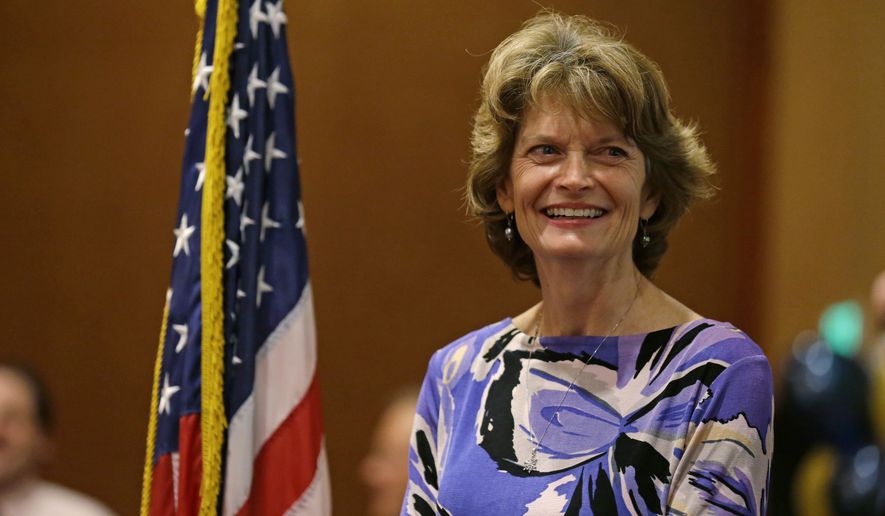Presumptive Senate Majority Leader Mitch McConnell has promised to bring energy bills up for a vote in the next Congress, and Sen. Lisa Murkowski, who is likely to become the next chairman of the Energy and Natural Resources Committee, isn’t waiting until January to get started.
Over the last year, the Alaska Republican has issued a blueprint for getting to energy independence and has released a series of white paper updates, detailing a goal to free the U.S. from oil imports from OPEC by 2020.
Ms. Murkowski calls for faster permitting and environmental reviews of new projects and expanded drilling on federal lands and waters. Her plan would also forgo federal regulations on hydraulic fracturing in favor of state regulatory programs.
A first early test is likely to come on the Keystone XL pipeline, which would bring crude oil from Canada into the U.S. for refinement and distribution.
Getting the long-stalled pipeline approved has been a top priority for Republicans and even some Democrats, who have butted heads with President Obama, who has repeatedly put off a decision on approving the permit to build the key section of the pipeline.
At his post-election press conference, Mr. Obama said the U.S. is already enjoying an energy boom thanks to domestic production.
“We are closer to energy independence than we’ve ever been before, or at least as we’ve been in decades,” the president said.
But Ms. Murkowski and fellow Republicans say that’s in spite of the Obama administration. They point to statistics that show oil and gas production on federal lands has actually dropped, but it’s been more than compensated for by increases on state and private lands.
“Claims that very recent federal policies have had a significant role in the increase in domestic oil production are therefore deeply misleading,” Ms. Murkowski said in a 2013 report.
Ms. Murkowski has also called for the Commerce Department to lift a 39-year-old ban on crude oil exports, saying that expanding exports could help U.S. allies who are dependent on Russian gas supplies. She said the U.S. should act quickly, because rivals such as Australia are moving quickly to develop export infrastructure.
Ms. Murkowski’s proposals also include expanded funding for nuclear and fusion power, improvements to grid infrastructure and better oversight for Energy Department loan guarantees.
She said coal retains a place as a key energy source both in the U.S. and abroad, which sets up a fight with the Environmental Protection Agency, who has proposed new rules that endanger coal-burning power plants.
On climate change, instead of mandated carbon reduction, Ms. Murkowski has proposed incentive-based energy efficiency programs, improving climate resilience, researching cleaner fuel use and diversifying energy supplies. She refers to these proposals as a “no regrets” climate policy.
Her plans also includes ideas to reform existing renewable energy policies. The proposal would phase out subsidies for renewable energy by 2020. Instead, Ms. Murkowski calls for research and development into technology neutral energy storage technology to prevent political favors to preferred industry.
• Kevin Rogers can be reached at krogers@washingtontimes.com.




Please read our comment policy before commenting.